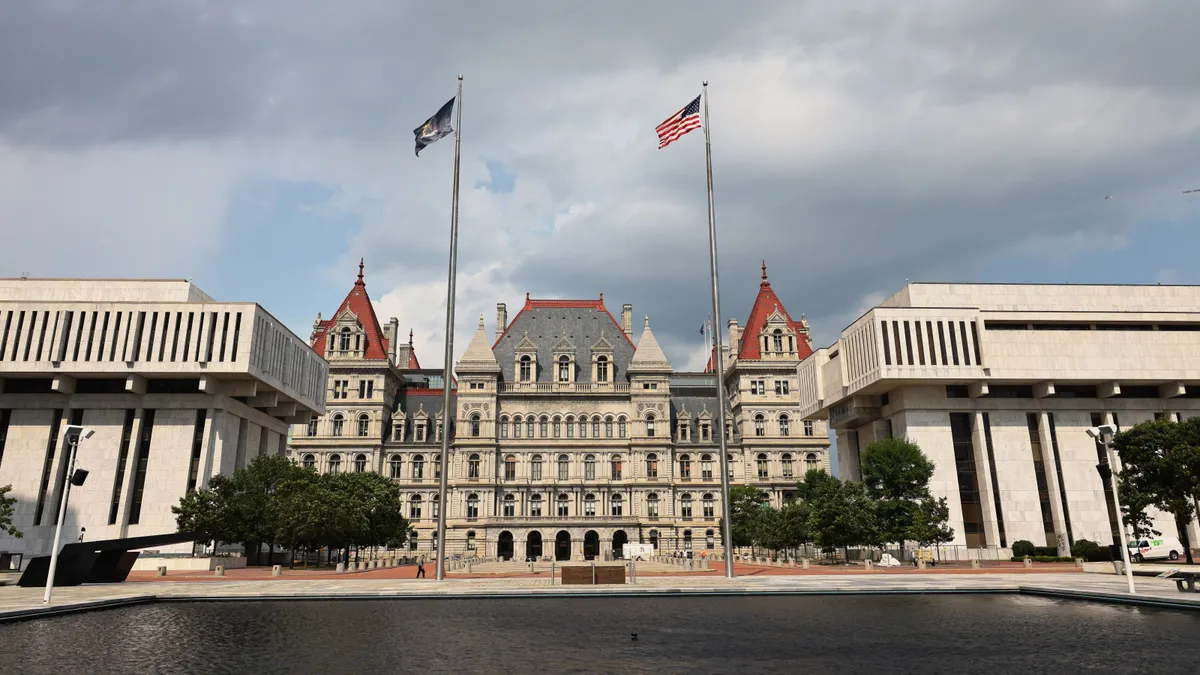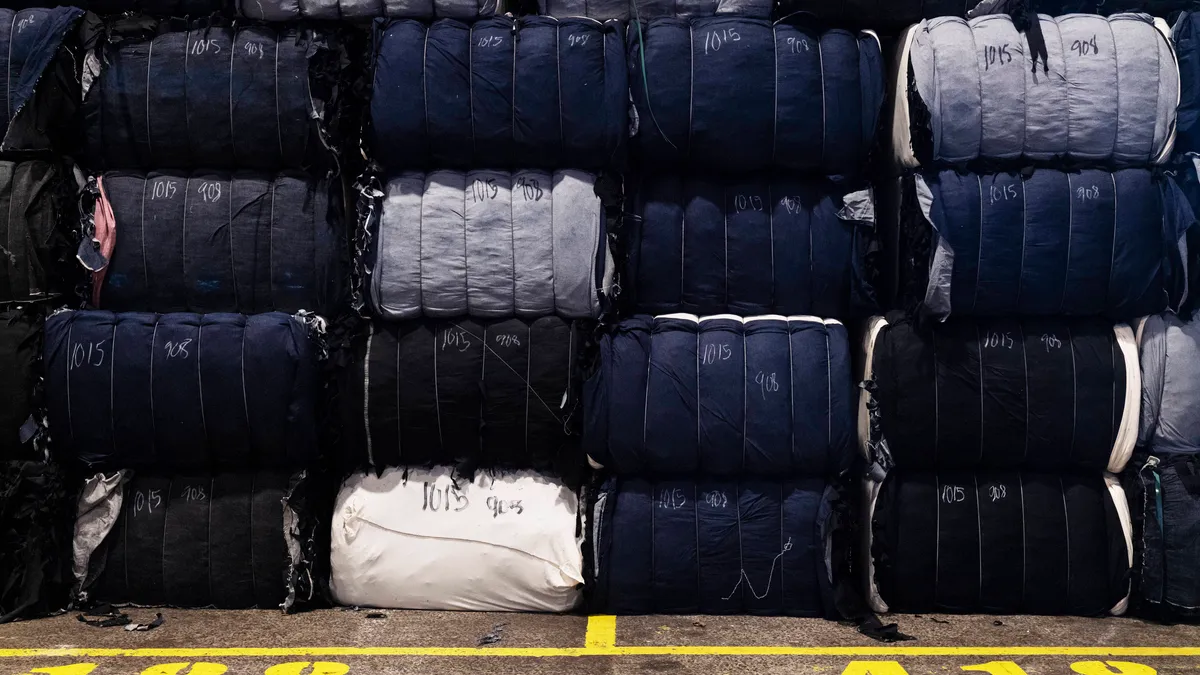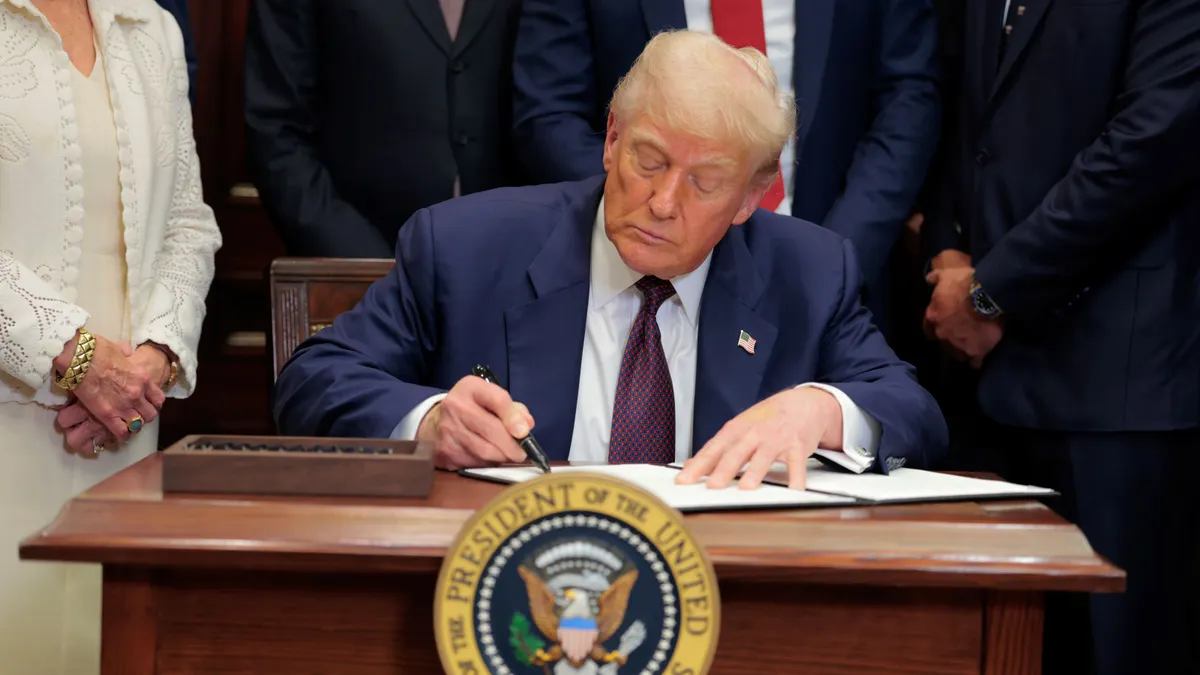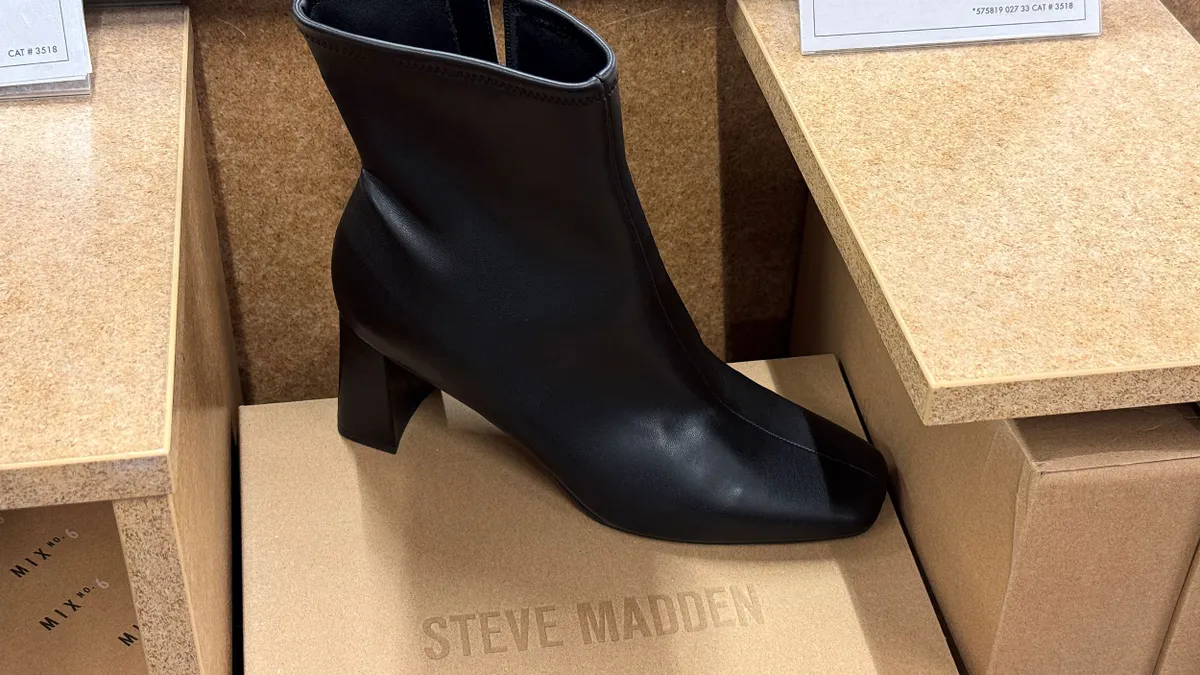While U.S. federal fashion legislation, including the Americas Act, continues to stall, states are taking textile and garment legislation into their own hands.
Two recently passed bills out of California and New York, and proposed legislation in Massachusetts and Washington state, are creating momentum in the industry around safety and sustainability. The bills take aim at textile recycling and recovery, retaliation against retail workers, supply chain transparency and hazardous waste.
“At the federal level, there has not been a lot of action,” Nate Herman, senior vice president of policy at the American Apparel and Footwear Association, said. “That’s because of the gridlock that’s occurring [in congress] that will likely continue. The fashion industry [is] just spending a lot of time trying to submit different reports to comply with different things and we’re not actually moving the industry forward.”
Here’s a closer look at the new laws and proposed 2025 legislation, and what their impact could be.
California: An act to establish textile recovery and recycling
California Gov. Gavin Newsom signed the Responsible Textile Recovery Act into law in September 2024. Introduced in 2023, SB707, will establish the nation’s first Extended Producer Responsibility, or EPR, program for textiles, making apparel producers responsible for the end of life cycle of their products. This legislation, impacting companies earning more than $1 million in annual sales, would hold brands responsible for the entire lifecycle of their products, including post-consumer waste.
“This now means being responsible to collect or implement take-back, reuse, repair and recycling programs, as well as incentives to redesign products for sustainability, better supporting recycling, reuse and repair,” Rachel Kibbe, CEO and founder of American Circular Textiles and Circular Services Group, said in an email. “For consumers, it can lead to more accessible reuse, repair and recycling options and ideally more sustainable products, though it may also slightly impact product prices. Ultimately, EPR aims to reduce environmental impact and make responsible consumption and end-of-life management easier and more accessible for everyone.”
Brands will also have to work with Producer Responsibility Organizations, or PROs, generally run by brands themselves, to ensure they meet regulatory and financial obligations under the EPR program.
Katie Pettibone, policy advisor at law firm Arnold & Porter, recommended companies look for PROs that already exist. She recommended companies immediately engage with CalRecycle, California’s Department of Resource Recycling and Recovery, since initial stages of this bill will roll out next year, with full implementation expected by 2030.
“Even brands that don’t operate directly in California may find themselves needing to adjust their practices to align with the state’s new standards, as global supply chains and production networks are highly interconnected,” Kibbe said.
New York also has an EPR bill that has remained in committee since January 2024.
New York: Relating to worker safety
In September 2024, New York Gov. Kathy Hochul signed the New York State Retail Worker Safety Act into law, requiring retailers to take measures to increase safety within stores.
According to the bill, which goes into effect in March, retailers will be required to take tangible next steps to improve conditions for retail workers, including installing better lighting and physical panic buttons that immediately alert local authorities. The measure will impact companies with more than 50 retail employees.
Companies will also post signs saying “limited cash on hand,” establish and implement reporting systems for incidents of workplace violence, and train employees on de-escalation tactics, all with the goal of minimizing violence in retail spaces and empowering employees with the tools they need to remain safe.
While the bill focuses mostly on retail, brands will be responsible for working with their retail teams to implement the workplace violence prevention policy. As part of this policy, it is illegal for brands to retaliate against employees who report concerns about workplace violence.
As part of the recently passed New York State Fashion Workers Act, the same is true for models who speak out on safety concerns. The Fashion Workers Act will go into effect in June 2025.
Massachusetts: An act to establish fashion sustainability and social accountability in the commonwealth
In January 2023, State Representatives David M. Rogers and Tram T. Nguyen introduced Massachusetts H420. The bill, which takes aim at large fashion companies doing work in Massachusetts, would require supply chain mapping and disclosure, due diligence reports and verification of sustainability and social accountability by the state.
“Our legislation would require major fashion companies, those selling in excess of $100 million in global revenues, to confront and address their environmental footprint and ensure that the companies are also taking care of the workers who make their products,” Nguyen said in an email.
The legislation was referred to the House Committee on Rules in May 2024. According to the Massachusetts Legislature website, there are no upcoming hearings scheduled.
Washington state: Relating to the environmental impacts of fashion
The Washington State Legislature introduced SB5965 and companion HB2068 in January 2024, an act relating to the environmental impacts of fashion. The bill addresses the fashion industry’s water use, chemical and dye-related pollution, hazardous waste and carbon emissions.
“Beginning January 1, 2027, subject fashion brands will be required to establish, track and disclose progress towards performance targets they establish under the legislation, including relating to energy and GHG emissions, water and chemical management,” Michael R. Littenberg, partner at law firm Ropes & Gray, said in an email.
SB5965 was referred to the Committee on Environment, Energy, & Technology, while HB2068 was referred to the Environment and Energy Committee. There has been no movement on either piece of companion legislation since January 2024. This legislation builds upon Washington State SB5607, which was first introduced in January 2023, but has made no movement.
“If adopted in its current proposed state — which is a big if — this legislation would impose onerous and probably unachievable due compliance requirements on fashion brands,” Littenberg said. “Many would probably instead decide it’s not worth doing business in Washington when faced with the costs of doing so. This legislation is just one in a growing line of human rights and environmental due diligence requirements that have been proposed and adopted around the world.”


















